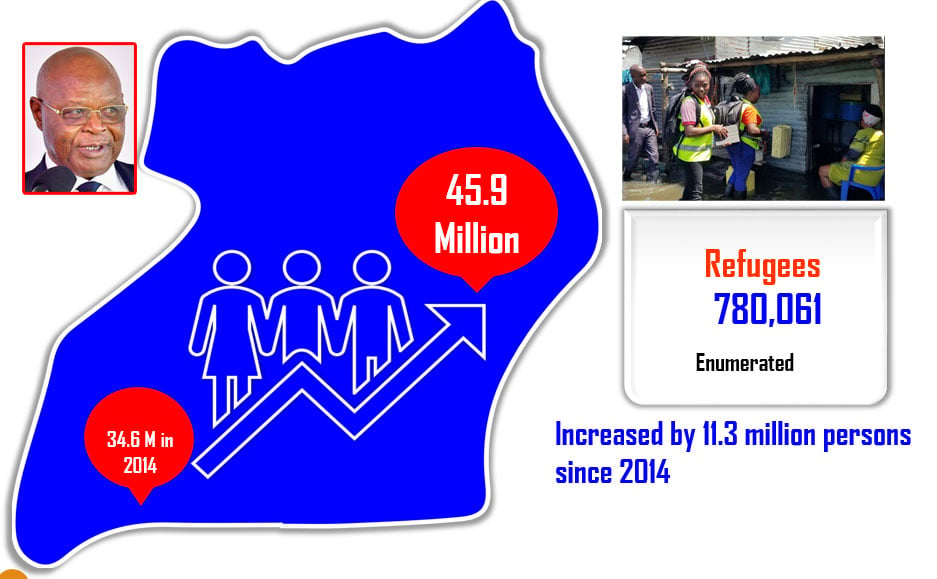Prime
Government has no plan to alter boundaries of Kampala

Since the launch of the World Bank Study Report ‘From Regulators to Enablers: Role of City Governments in Economic Development of Greater Kampala’ by the Prime Minister on March 9, 2018, there have been allegations about a plan by government to extend the boundaries of Kampala.
The World Bank report presented analysis targeted at addressing knowledge gaps that assisted in the development of the Government’s ‘Greater Kampala Economic Development Strategy’, which is a culmination of efforts to put in place a common agenda for coordinated metropolitan development across Kampala City and the neighbouring districts.
I would like to authoritatively state that the Greater Kampala Economic Development Strategy does not affect the administrative boundaries of Kampala, Mpigi, Mukono and Wakiso, which make up the Greater Kampala Metropolitan Area (GKMA), but rather focuses on service delivery to the people who reside and work in these areas.
The strategy has been designed to enable more coordinated planning and joint investments. It acknowledges the challenges specific to the GKMA and highlights the core unique selling points as a destination for industry and commercial enterprise. The strategy emphasizes coordinated road and transport infrastructure development to connect people to jobs and link local economic activities; affordable housing and land management; conservation and protection of the GKMA environmental assets with a view of creating a green city; comprehensive solid waste management programme, business support to transform the informal sector; the youth and economic cluster growth, which will focus on small and medium enterprise workspace and innovation skilling, business engagement and youth entrepreneurship development programme; deliberate efforts to promote tourism in the GKMA, which can create millions of jobs from exploiting the rich untapped tourism potential; and effective city and local government service delivery.
Within the strategy, KCCA and each of the neighbouring local governments shall develop their own strategic development plans. In these plans, there are projects that shall specifically be implemented within the individual geographical boundaries of these areas, however, there are also projects that cut across the different jurisdictions.
The National Planning Authority (NPA), is preparing a Cabinet Paper with proposals of an appropriate delivery mechanism for the implementation of the different projects that cut across the GKMA.
At NPA, however, we are cognisant of the fact that KCCA is not mandated to implement projects beyond their administrative boundaries, and the Ministry for Kampala Capital City still needs capacity and an enabling law to operate within the GKMA, we, therefore, recommend that the delivery unit be established in the Ministry of Lands, Housing and Urban Development because of the Urban Development component that cuts across the entire country and the success registered in implementing initiatives of a similar nature, such as USMID project.
The projects within the strategy are not to be implemented as a stand-alone, but are anchored on a number of interdependencies to improve the urban productivity of the GKMA. As we await Cabinet decision, however, the NPA, with support from the World Bank, is going ahead to develop project documents and indicative costs for the strategy, which on approval by Cabinet, the projects will be implemented.
The background to this is that Kampala, the capital city of Uganda, has grown four times since 1980s in structure and shape at a pace faster than its planning and structure re-adjustments. A city that had been estimated to host 300,000 people at the maximum is now home to about 2.5 million people during the day.
The rapid growth in the physical developments as well as in its population have caused structural and socio-economic challenges for the greater Kampala, including lack of an integrated transport system; challenges related to environmental management; development of slums and unplanned settlements, spiraling urban poverty exacerbated by high unemployment levels; poor infrastructure for markets, water and health service systems and housing, among others. The challenges are contributed to and also affect wider areas that surround the city, including Mukono, Wakiso and Mpigi.
In 2010, government created the Kampala Capital City Authority (KCCA) as a central government agency to streamline operations and improve service delivery in the city. However, over time, it has become apparent that the development challenges of Kampala cannot be resolved by KCCA alone, neither can the benefits of urbanisation be harnessed by investing in KCCA alone, thus in 2012, the Greater Kampala Metropolitan Area comprising Kampala City and the neighbouring districts of Wakiso, Mukono, and Mpigi, were declared as a Special Planning Area because government had realised its potential to provide the foundation for economic growth for the whole country.
In 2013, Cabinet approved the GKMA Development Framework that provided the new boundaries and associated maps. The decentralisation policy framework has limitations since each entity (local government or urban authority) tends to plan for areas under their jurisdiction and administrative control with no inter entity planning.
As such, the development plan of KCCA is not linked to the local government development plans of Mukono, Wakiso and Mpigi districts. One of the key aspects of this planning framework was the establishment of the Metropolitan Physical Planning Authority to operationalise the GKMA Development framework. This, however, would be a duplication of mandate since we already have the National Planning Authority. In line with the Presidential directive on mushrooming agencies, we do not support the establishment of this Metropolitan Physical Planning Authority.
The Uganda Vision 2040 and the second National Development Plan (NDPII) envisage a major role for the GKMA in Uganda’s socio-economic transformation. To date, the GKMA contributes more than 31.2 per cent to the country’s GDP and 9.5 per cent to national employment.
I appeal to all stakeholders, including KCCA, the metro area local governments and relevant ministries, departments and agencies, particularly the political leaders, policy makers and implementers to promote dialogue and embrace broad consultations.
Dr Kisamba-Mugerwa is the chairman of the National Planning Authority.
[email protected]




